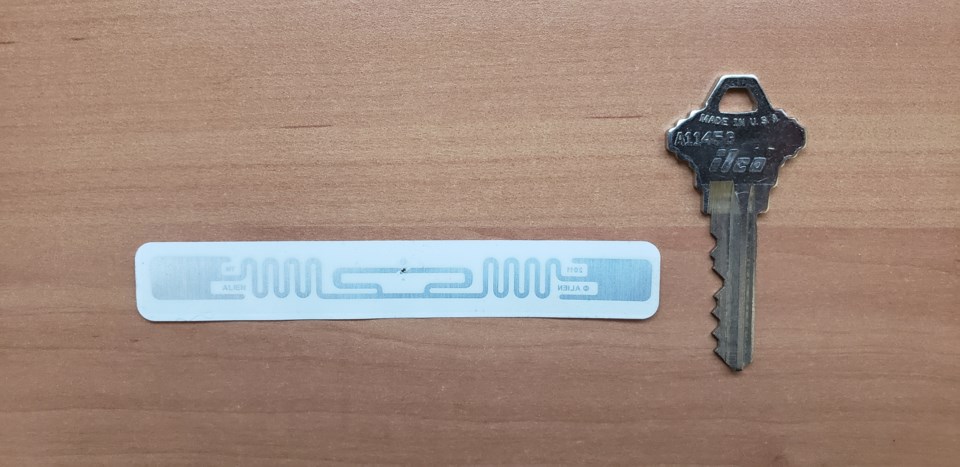City workers have begun the process of attaching special tags to keep better track of household garbage carts via a radio frequency identification system.
By July 15, more than 23,000 carts will have been outfitted with the items, each of which is about 10 cm long and are also used on airline luggage, tickets and retail goods.
The technology, combined with the onboard cameras already installed on the collection trucks, will improve the City's ability to an eye out for broken, overflowing or missing carts - issues that generate about 750 calls to city hall per year according to spokesperson Mike Kellett.
"To give you an example, if a driver is going down the street and sees an overflowing garbage cart, which we can't pick up, it will register that cart so that if that homeowner later calls and asks 'why wasn't my garbage picked up,' that'll enable us to cross reference using the radio frequency tags to say we have a photo of it, your garbage was overflowing, this is why it wasn't picked up.
"And that saves a lot of staff time and fuel because the driver won't have to go back to that residence and investigate. He can just quickly reference it on the computer."
The collection system, with pickup scheduled according to the zone where a household is located, will remain unchanged.
Kellett said it will also help a crew plan before drivers go out on a route "because they can see where everything is and not have to double back. Generally, everything is more streamlined."
The tags and the cameras will also help keep recyclables out of landfills by allowing drivers to pinpoint households that are disposing of improper products, he added.
Information collected through the tags will be stored on a secure server by the City with personal information like people or vehicles blurred out to protect privacy.
The work costs about $10 per cart.



.png;w=120;h=80;mode=crop)